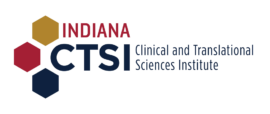Agile Implementation Training
Agile Implementation — a proven evidence-based change methodology designed specifically to improve healthcare. Multiple sessions are available and provided by the Center for Health Innovation and Implementation Science. Registration and travel are covered for GLPTN participants. CME/CE credits available.
Session Dates: June 25-27, July 30-August 1
Clinician's Perspective

I'm very excited to be part of GLPTN and witness firsthand some of the exciting changes that are taking place in our healthcare system to help promote high quality care. I hope to see the tools of implementation science put to the test to help rapidly disseminate meaningful improvements to healthcare processes and ultimately to patients' lives.
News
2017 Million Hearts Hypertension Control Challenge
Wednesday, April 12, 2017
Dear Colleague: Today, health systems and professionals are equipped with the knowledge and technology to ...
3 Robust Approaches to Dementia Care
Wednesday, March 8, 2017
3 Robust Approaches to Dementia Care Programs integrate services in the hospital and out, and among ...
A Population Health Approach to Dementia
Tuesday, March 7, 2017
A Population Health Approach to Dementia by Catherine A. Alder, JD, Bharath B. Reddy Bynagari and Malaz ...
Harnessing Classroom Technology: Balancing Privacy and Oversight Ethically
As classrooms become more tech-focused, we're in a bit of a pickle: we love the perks of tech, but we also need to make sure privacy is protected. Tech makes learning exciting, but it also brings up concerns about keeping data safe and doing things ethically. This article dives into why it's crucial to tackle these ethical tangles head-on, making sure classroom tech stays a tool for good and not a privacy menace.
Tech has totally revamped how we teach, offering up interactive and tailored learning experiences. Smartboards, apps, and such let students dive into lessons, boosting understanding and memory. Plus, it caters to all sorts of learners, making sure nobody's left behind. Then there's the teamwork bit—tech makes it a breeze to collaborate and learn from each other. And let's not forget the internet, a goldmine of info that spices up any curriculum.
Privacy Worries in Classroom Tech
But for all its perks, the widespread use of classroom tech brings up some legit concerns about privacy and security. These tech platforms scoop up all sorts of data—student stats, grades, behaviors—to tweak lessons and track progress. But gathering all this info willy-nilly poses risks, like breaches and snooping, leaving students vulnerable. Plus, if educators or third-party folks mishandle the data, it's a recipe for disaster, from identity theft to trust issues. To tackle this, laws like FERPA in the US set rules to keep student data safe and sound.
Educators and admins have a big role in tackling the tricky ethical bits of classroom tech. They've gotta be upfront with students and parents about what data's being collected, why, and how it's being protected. Getting clear consent before gathering and using data ensures folks know their rights and can make informed choices about sharing info. And beefing up security measures—like encryption and access controls—keeps data under wraps. Also, the less sensitive data we collect, the better, sticking to what's strictly needed for teaching.
Teaching students digital smarts is key to navigating the wilds of online privacy and security. Beyond just how to use tech, students need to know their rights and responsibilities about their data. By fostering a culture of responsible tech use, students can learn to think critically about the ethics of their online actions and make savvy choices about privacy settings. Plus, teaching them to stand up for their rights helps them navigate the digital world with confidence.
Putting Ethical Guides into Action
To keep classroom tech in line, schools need straightforward rules about gathering, using, and sharing student info. These rules should explain why we collect data, what we collect, and how we keep it safe. Educators and staff should get trained up on privacy best practices to keep things shipshape. And teaming up with tech companies to prioritize privacy and security in educational tools is a must. Together, we can build a culture of ethical tech use in classrooms.
Taking a peek at real-world cases—both the wins and the slip-ups—can teach us a lot about the consequences of ethical choices in classroom tech. Success stories show us the power of putting privacy first, while blunders remind us of the risks of dropping the ball. By learning from these examples, we can grasp the importance of ethics and take steps to keep student privacy intact and tech use responsible.
In a nutshell, classroom tech rocks, but it brings its fair share of ethical twists. By putting privacy first and setting clear rules, educators, admins, and policymakers can keep tech in check, ensuring it stays a force for good in education. Teaching students digital savvy and fostering a culture of responsible tech use are crucial steps in tackling online privacy and security. Together, let's build a safe and ethical learning space where tech fuels empowerment and innovation.









